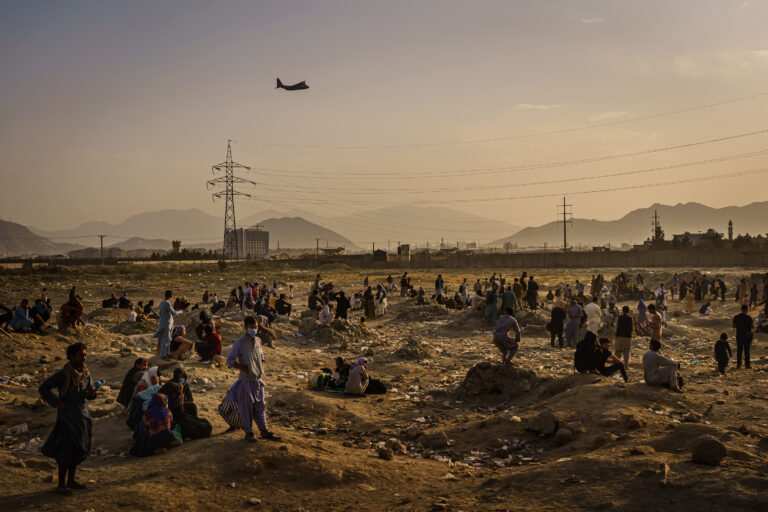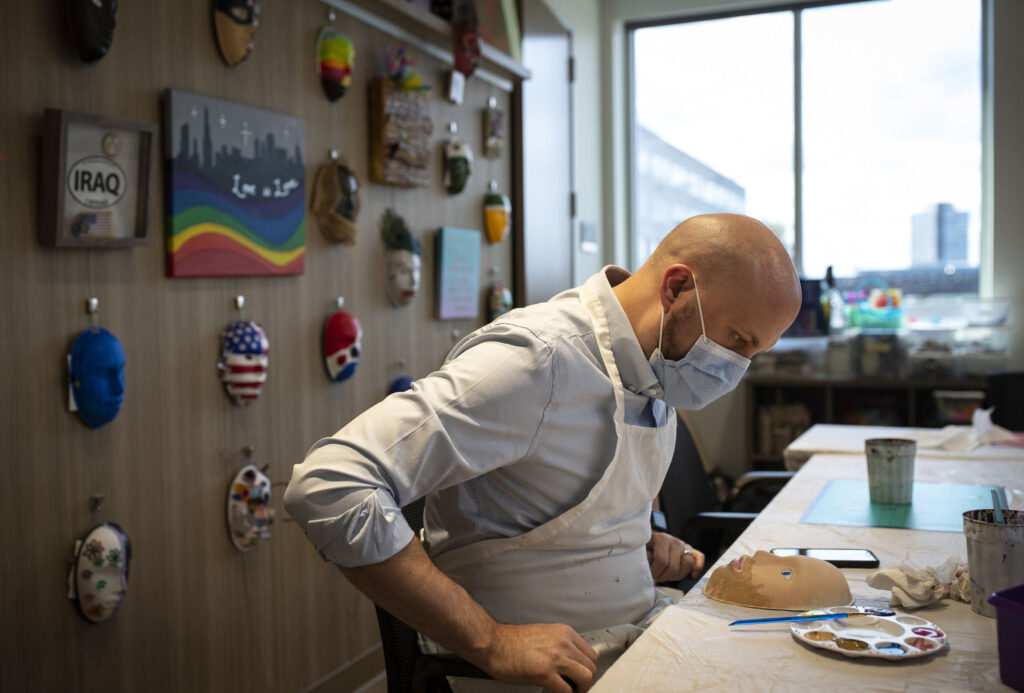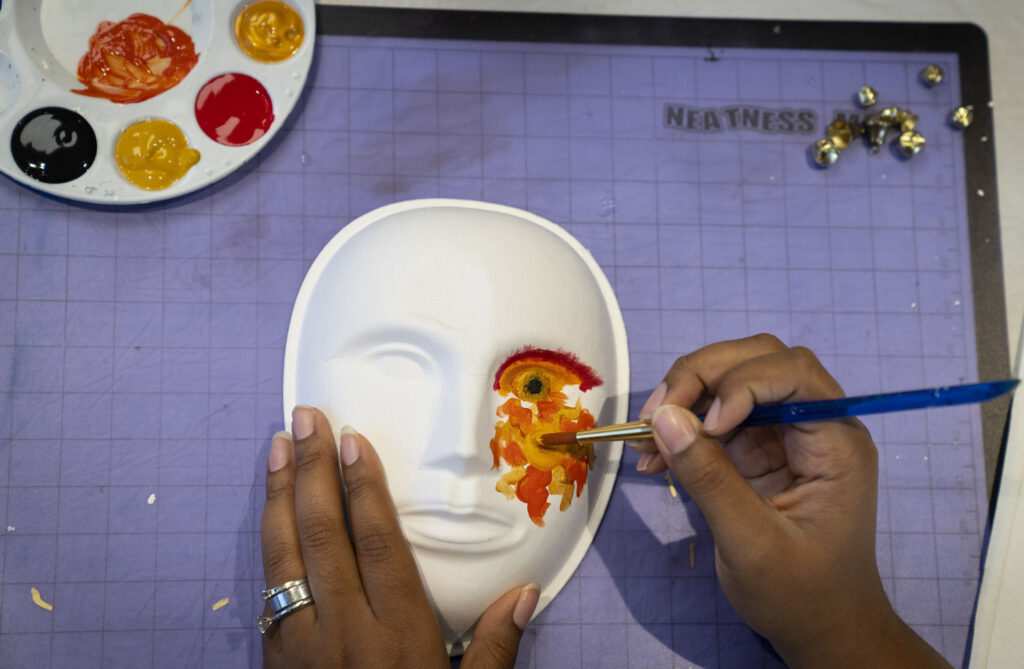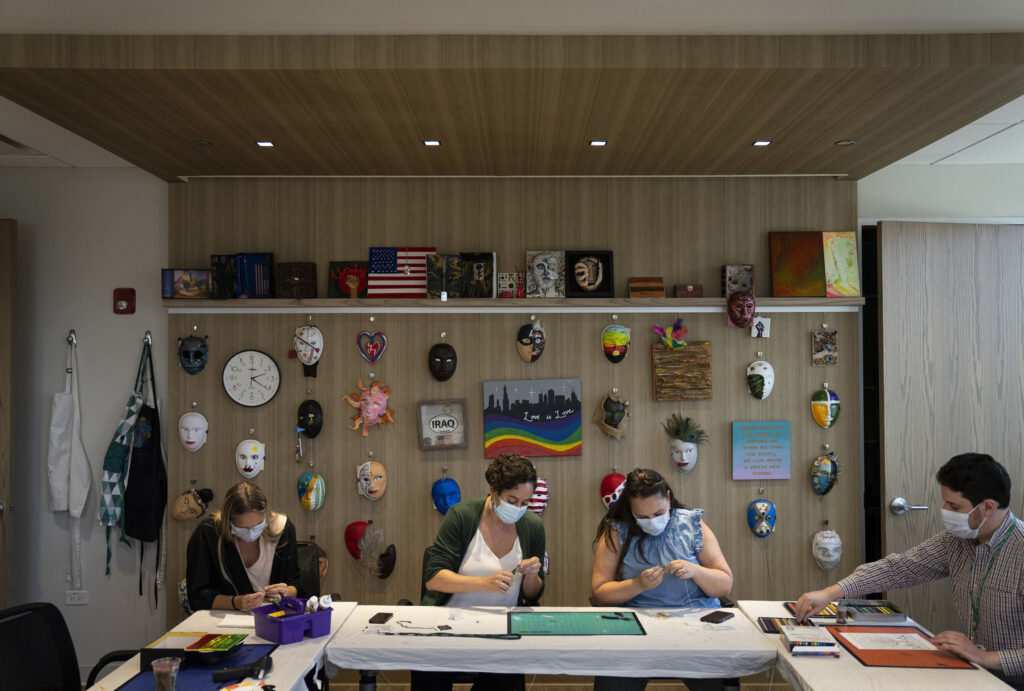
Many of them enlisted after the horrors of 9/11.
And now, two decades later, the 2.8 million service members who served in Afghanistan and Iraq face unique challenges, from trying to wrap their minds around a shifting mission to a U.S. civilian population that many feel doesn’t understand their service.
With the 9/11 anniversary and the recent fall of Afghanistan, veterans are reflecting on their time in service. The quick collapse of the country summoned what experts call “moral injury” — wrestling with your own morals or ethics — as well as, for some, questions about the purpose of their service.

Many of the people Joe Reagan served with in the Army joined after 9/11, or even because of it, said the director of military and veteran outreach at Wreaths Across America, a group that honors military service and sacrifice. For Reagan, when he enlisted in 2005, memories of 9/11 were still fresh. Although it was not the sole reason he joined the military, he said 9/11 impacted him and his decision.
“Many of my peers felt that same way,” Reagan recalled. Now, he says, “A lot of veterans feel as if they’re not understood.”

The number of Americans who can relate to veterans’ experiences has slimmed. In 2018, about 7% of U.S. adults were veterans, down from 18% in 1980, according to Pew Research Center, and less than 1 % of the U.S. population is on active duty.
“How many people actually know 1%?” said Ashton Kroner, a veteran outreach coordinator at Rush University Medical Center’s Road Home Program, which provides mental health services for veterans and their families. “There’s not that personal stake, so they can’t really recognize the issues that they’re facing.”
She added, “If the Vietnam generation was met with hostility from the anti-war movement upon coming home, the post-9/11 generation was arguably met with apathy.”
Kroner, who served in Afghanistan, noted that service members’ role in a prolonged occupation that also had a strategy to win hearts and minds of a different culture led to many ambiguous situations. She was in seventh grade when 9/11 happened; it solidified, even at that young age, a goal of joining the military, she said.
She said the mission in the Middle East changed from retaliation to fighting terror to rebuilding a country and creating a democracy.
Service members were placed daily in choices that most Americans could never imagine. She remembers handing out sewing kits to Afghan women and trying to build relationships with families, then later seeing efforts toward friendship turn to combat, such as when a woman arrived and detonated a suicide vest.

“It’s not just black and white,” she said.
When she got home, family and friends had spent the time she was abroad going to the mall, attending classes, seeing movies.
“It was really hard to sit there and relate to them,” she said.
Many post-9/11 vets face economic and mental health struggles, along with trying to find purpose.
A study of post-9/11 veterans by the Department of Veterans Affairs noted from 2016 data that post-9/11 veterans had a higher percentage of service-connected disabilities and were more likely to receive food stamps and live in poverty.
More than one-third of post-9/11 veterans had thoughts related to suicide, according to a 2019 Wounded Warrior Project survey. Former service members reported changes in sleeping patterns, post-traumatic stress disorder, anxiety and depression.
Mark Doyle, a Chicagoan who was in Afghanistan as part of a forensic accounting team and later started Rags of Honor, which employs homeless veterans through a screen-printing operation, said many of his employees mention the difficulty of finding purpose.
“There wasn’t ever a clear mission,” he said. “What was all the sacrifice for? That is what’s troubling all these people. Did my service make a difference?”
Veterans are eager to remove the stigma surrounding them.
Post-9/11 vets are a more diverse, resilient and accomplished group. They were more likely to use education and home loan programs, according to the VA study. Millennial and Gen Z veterans accounted for half of all VA purchase loans in fiscal year 2020.
What people learn in the military — quick and innovative thinking, organizational skills, teamwork, precision and leadership — can translate well to civilian employment, but employers who do not understand the military might not understand the people who served. This can make the transition harder.
Reagan recalled a conversation with a co-worker who was surprised to hear he was in the military, because she said he was “remarkably well-adjusted.” The co-worker had never met someone who was in the military, and this comment reflected negative misconceptions some people have about veterans, he said.
“It ended up being a very positive conversation,” Reagan said. “When I tell that story initially, it can be very cringeworthy. I know that many veterans are sharing those same types of experiences.”
Groups like Rush’s Road Home Program can help, with mental health support for veterans and their families. For people who might be hesitant or resistant, a variety of options for help range from counseling to medications to things like equine therapy. BraveHearts, a Poplar Grove organization, helps veterans through equine therapy, riding horses and gentling mustangs.
Nationally, Iraq and Afghanistan Veterans of America is prepared to provide support and resources for veterans who may feel triggered by 9/11.
Kroner noted she’s already seeing a decline in the number of headlines about Afghanistan; meanwhile, the issues on the home front persist.
“We have hundreds of thousands of service members that have deployed and come back home that are really struggling,” she said.
___
© 2021 Chicago Tribune Distributed by Tribune Content Agency, LLC
0 comments :
Post a Comment